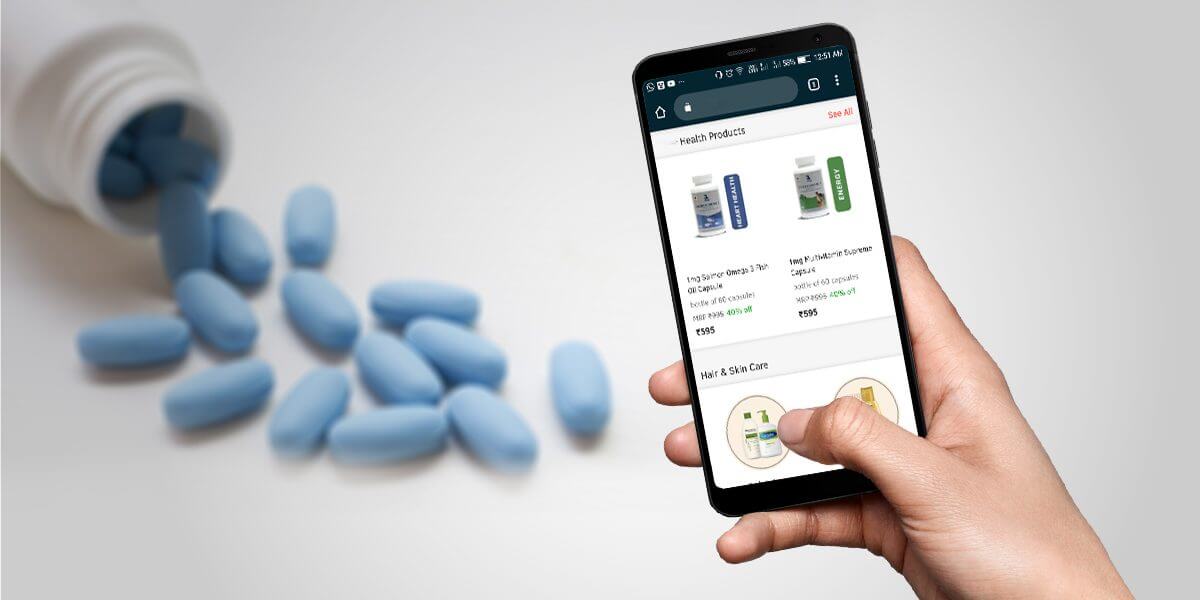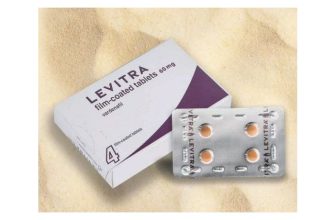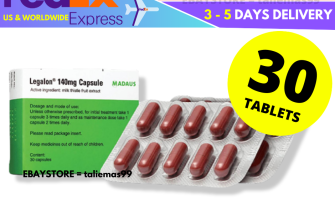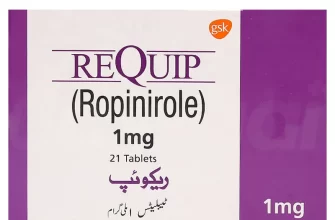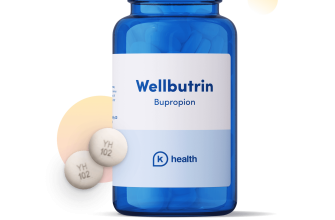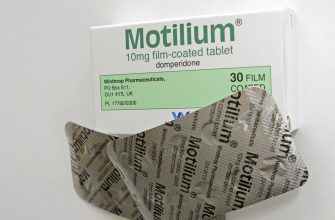Need prescription medications in India? Consider online pharmacies as a convenient option. Over 70% of Indians now own smartphones, facilitating easy access to online healthcare services. This presents both opportunities and risks, so informed choices are key.
Verify the legitimacy of any online pharmacy before placing an order. Look for licensing information readily displayed on their website, ideally with a verifiable government registration number. Check independent reviews on sites like Trustpilot; avoid pharmacies with overwhelmingly negative feedback.
Prioritize pharmacies with secure payment gateways and transparent privacy policies. Data breaches are a serious concern, so confirm the platform utilizes SSL encryption (look for the padlock symbol in your browser’s address bar). Ensure clear communication channels; easy access to customer service is crucial for resolving issues.
Always consult your doctor before ordering medications online. They can advise on appropriate dosages and potential drug interactions. Never self-medicate; using the wrong medication can have severe health consequences. Remember to only use a verified prescription when purchasing medicine online.
Finally, compare prices from several reputable online pharmacies before committing to a purchase. Price differences can be significant. Be mindful of unusually low prices, as these might indicate counterfeit medications.
- India Drugs Online: A Comprehensive Overview
- Legality and Regulation of Online Pharmacies in India
- Safety Concerns and Counterfeit Drugs
- Accessing Genuine Medications Online: Tips and Precautions
- Telemedicine and Online Consultations for Prescription Drugs
- The Role of Government and Regulatory Bodies in Online Pharmacies
- Licensing and Compliance
- Data Security and Patient Privacy
- Combating Counterfeit Drugs
- Consumer Protection
- The Future of Online Pharmacies in India
- Technological Advancements
- Market Consolidation and Expansion
India Drugs Online: A Comprehensive Overview
Access to prescription medications online in India presents both opportunities and challenges. Reliable online pharmacies require valid prescriptions and adhere to strict regulations. Verify the license and registration of any online pharmacy before ordering.
Legitimate online pharmacies typically offer secure payment gateways and transparent pricing. Look for those with clear contact information and customer service channels. Compare prices across multiple registered sites, ensuring you’re getting a fair deal.
Beware of counterfeit drugs. Purchasing from unregistered websites poses significant health risks. Counterfeit medications lack quality control, potentially containing harmful ingredients or insufficient active substances.
Protecting your data is paramount. Choose platforms utilizing secure encryption for your personal and financial information. Read their privacy policies before providing any details.
Delivery times and methods vary considerably. Check the shipping options and estimated delivery timeframe before placing an order. Understand potential customs delays for international shipments.
Customer reviews provide valuable insights. Review several customer testimonials to gauge the reliability and service quality of a particular online pharmacy. Negative feedback should raise red flags.
Consult your doctor before ordering any medications online. They can advise on the appropriate dosage and potential interactions with other drugs you may be taking. This ensures your safety and treatment effectiveness.
Remember, responsible online medication purchasing prioritizes your health and safety. Choose wisely and always prioritize verifiable sources.
Legality and Regulation of Online Pharmacies in India
Online pharmacies in India operate within a complex legal framework. The Drugs and Cosmetics Act of 1940 and subsequent rules govern the sale and distribution of drugs, including online sales. However, specific regulations for e-pharmacies are still developing.
The Information Technology Act, 2000, also plays a significant role, addressing issues like data protection and online transactions. Importantly, the government has issued guidelines, though enforcement remains a challenge.
Currently, only licensed pharmacies can sell medicines online. This license must be obtained from the relevant state licensing authority. The online platform must verify prescriptions digitally and ensure proper storage and delivery of medications. Direct-to-consumer advertising of drugs online remains heavily restricted.
To ensure legitimacy, verify the pharmacy’s license on the respective state drug controller’s website. Check if they adhere to the guidelines and possess valid registration. Be wary of websites lacking this information.
| Area | Key Regulation/Requirement |
|---|---|
| Licensing | State-level drug licenses are mandatory for online pharmacies. |
| Prescription Verification | Digital verification of prescriptions is generally required. |
| Data Protection | Adherence to the Information Technology Act 2000, regarding patient data. |
| Delivery | Safe and secure medication delivery procedures must be in place. |
| Advertising | Strict restrictions exist on online drug advertising. |
Consumers should exercise caution when using online pharmacies. Report suspicious activities to the appropriate authorities. Always prioritize your health and safety.
Safety Concerns and Counterfeit Drugs
Always verify the online pharmacy’s legitimacy. Check for licensing information and customer reviews on independent platforms. Avoid sites lacking physical addresses or contact details.
Counterfeit drugs are a significant threat. They may contain incorrect dosages, harmful ingredients, or be completely inert. A 2022 WHO report estimated that 10% of medicines globally are counterfeit. This poses substantial health risks, potentially leading to treatment failure or serious adverse reactions.
Purchase medications only from verified sources. Look for the secure padlock symbol in your browser’s address bar, indicating a secure HTTPS connection. Never share personal or financial information on suspicious websites.
Report suspicious online pharmacies to the relevant authorities. In India, this might include the Central Drugs Standard Control Organization (CDSCO). This helps protect others from fraudulent websites and potentially dangerous products.
Be cautious of unusually low prices. Significantly cheaper medications often signal counterfeit products. Legitimate pharmacies have operational costs that reflect in their pricing.
Consult your doctor before ordering any medication online. They can advise on safe sources and appropriate treatment options, reducing your risk of encountering counterfeit drugs.
Examine the packaging carefully upon delivery. Look for inconsistencies in printing, spelling errors, or unusual seals. Report any suspicious packaging to the seller and regulatory bodies.
India’s online drug market offers convenience, but requires vigilance. Prioritizing safety measures protects your health and wellbeing.
Accessing Genuine Medications Online: Tips and Precautions
Verify the online pharmacy’s license and registration. Look for clear contact information, a physical address, and verifiable accreditation from reputable organizations. Don’t rely solely on website testimonials.
- Check for secure payment gateways (look for “https” in the URL and a padlock icon). Avoid pharmacies that only accept cash or wire transfers.
- Scrutinize the website for typos, grammatical errors, and unprofessional design. A reputable pharmacy maintains a professional online presence.
- Read customer reviews from multiple sources. Be wary of overwhelmingly positive reviews; balanced feedback offers a more realistic picture.
Always confirm the medication’s authenticity. Look for a unique identification number or tracking code to verify its source and track its shipment.
- Contact the manufacturer directly to confirm the authenticity of your prescription.
- Consult your doctor or pharmacist for advice on reputable online sources and safe medication practices.
- Compare prices across multiple verified pharmacies. Beware of suspiciously low prices, which may signal counterfeit products.
Understand the risks involved. Online pharmacies aren’t always regulated as strictly as brick-and-mortar stores. Be prepared for potential delays or complications.
- Only order medications with a valid prescription from your doctor.
- Be cautious about unsolicited offers or advertisements for medications.
- Report suspicious online pharmacies to the appropriate authorities.
Protect your personal information. Never share sensitive data unless you’re completely confident in the pharmacy’s security measures.
Telemedicine and Online Consultations for Prescription Drugs
Consider using telehealth platforms for legitimate online prescriptions. Many reputable platforms verify doctor credentials and ensure secure prescription delivery. This method offers convenience and potentially quicker access to needed medications, especially for those in remote areas.
Always check the platform’s licensing and security measures before using their services. Look for SSL encryption and patient data privacy policies. Verify doctor qualifications through independent sources if possible.
Be prepared to provide detailed medical history. Accurate information ensures your doctor can provide appropriate care and a safe prescription. Upload clear images of any required documents, ensuring readability for your doctor.
Familiarize yourself with the platform’s communication protocols. Understand the process for follow-up appointments and prescription refills. Note any limitations on the types of consultations or medications offered.
Compare prices and services across different telehealth platforms before committing. Consider factors like consultation fees, prescription costs, and delivery options. Read user reviews to gauge others’ experiences.
Remember to report any issues or concerns to the platform immediately. Prompt reporting helps maintain service quality and protect other users.
If you experience unexpected side effects, contact your doctor or a local healthcare professional. Never disregard or delay seeking medical advice due to online consultation.
The Role of Government and Regulatory Bodies in Online Pharmacies
The Indian government, through agencies like the Central Drugs Standard Control Organisation (CDSCO), plays a critical role in regulating online pharmacies. They establish licensing requirements, ensuring only authorized vendors operate. These licenses verify the legitimacy of the online pharmacies, their storage facilities, and the quality of the medicines they dispense. Regular inspections ensure compliance.
Licensing and Compliance
Strict adherence to licensing procedures is paramount. Online pharmacies must demonstrate secure online systems preventing unauthorized access to patient data and medication orders. They must also show clear processes for handling returns and complaints. The CDSCO publishes detailed guidelines for these processes. Failure to comply results in penalties, including license revocation.
Data Security and Patient Privacy
Protecting patient data is a non-negotiable requirement. Online pharmacies must implement robust data encryption and security protocols, conforming to data privacy regulations. These regulations outline the appropriate storage and handling of sensitive patient information. Regular audits ensure ongoing compliance with these standards.
Combating Counterfeit Drugs
A significant challenge is combating the sale of counterfeit drugs. The government actively pursues strategies to detect and eliminate fake medicines sold online. This includes collaborations with pharmaceutical companies and international agencies to verify the authenticity of drugs. Tracking and tracing systems are being implemented to monitor the supply chain more effectively.
Consumer Protection
Government initiatives focus on protecting consumers from fraudulent practices. This includes establishing clear mechanisms for reporting issues and addressing consumer complaints. The government empowers agencies to investigate and take action against online pharmacies involved in deceptive marketing or the sale of substandard medication. These actions promote fair pricing and transparency.
The Future of Online Pharmacies in India
Expect stricter regulations focusing on verification of online pharmacies and stronger penalties for illegal operations. This will improve consumer safety and build greater trust in the online pharmaceutical market. The government’s push for digitalization will simultaneously streamline the licensing process and improve traceability of drugs, combating counterfeiting effectively.
Technological Advancements
Artificial intelligence (AI) will play a crucial role. AI-powered chatbots can offer immediate assistance to customers, while AI-driven algorithms can personalize medication recommendations and improve prescription management. Blockchain technology can further enhance drug traceability, ensuring authenticity and preventing fraud. Telemedicine integration will become more seamless, improving access to healthcare professionals and reducing reliance on physical visits. This trend will drive online pharmacy growth substantially. Expect to see greater use of mobile apps for medication reminders and refill requests, improving patient adherence to treatment plans. Adoption of these technologies should increase by 25% within the next three years.
Market Consolidation and Expansion
The market will see a consolidation of smaller players into larger, more established companies. This will lead to increased investment in technology and infrastructure, as well as a broader range of services for consumers. Expansion into rural areas, currently underserved, will also be a key focus, leveraging technology to overcome logistical challenges and extend healthcare access to a wider population. Market analysts project a 30% expansion of online pharmacies into rural areas within five years.

